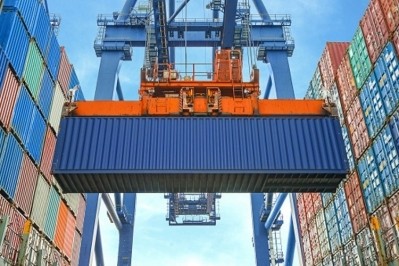Logistical barriers prevent SMEs from exporting

The culmination of unprecedented events – including Brexit and the COVID-19 crisis – have pushed current exporting operational models to breaking point, with industry lacking the logistical foresight or workforce to alleviate this strain, claimed the report – Delivering the Goods: The Global Ambition of the UK’s Entrepreneurs.
In a survey of 1,000 UK small and medium-sized enterprises (SMEs), a third suffered damaged or lost consignments when exporting goods and 40% cited complex paperwork as problematic for their business.
Trading overseas has become has become cost prohibitive, with 41% experiencing expensive and slow shipping and a third having unexpected charges or duties added to customer costs.
GS1 UK and Enterprise Nation called for increased industry support from all key stakeholders and government to tackle these logistical barriers – this included improving awareness of the initiatives available to this cohort.
Exporting message hits home
Emma Jones, founder of small business network and business support provider Enterprise Nation, said: “What is clear is that the Government mantra ‘exporting is good’, has finally hit home and is being wholeheartedly embraced by the UK’s entrepreneurs – interestingly even those at very early stages see exporting as an important route to success.
“But while they have nailed how to market their products and services to overseas customers and handle currency and payment, they need more support to build good logistical skills and capabilities that will ultimately cut shipping time and costs. The missing piece in their armoury is literally delivering the goods.”
SMEs interviewed emphasised it was the lack of transparency and clarity that needed to be addressed in order to improve their navigation of the exporting process.
More than half (58%) felt there needed to be clearer guidelines for small businesses, with just under a half cited expert advice and greater access to overseas market information as other helpful tools to increase trading sales.
Supporting small businesses
GS1 UK chief marketing officer Sarah Atkins added: “What we need to see now is a shift in emphasis of export support for small firms, from marketing and awareness to more technical elements such as finding and working with efficient delivery partners, ensuring labelling is watertight to avoid unnecessary delays and clearer guidelines specifically aimed at smaller businesses from Government.
“We also need to see the Government operating in a new ‘transparency and assist mode’ so we can make the progress we need to see.”
The report detailed practical recommendations for the Government to offer targeted support to increase the skills and potential of UK’s exporting entrepreneurs.
This included – the production of a detailed export country-specific guidance specifically written and aimed at the smallest firms, a one-stop-shop that could help smaller businesses simplify complex regulatory issues and the development of a central hub where SMEs can connect and group together to ‘bulk buy’ and reduce shipping costs.















